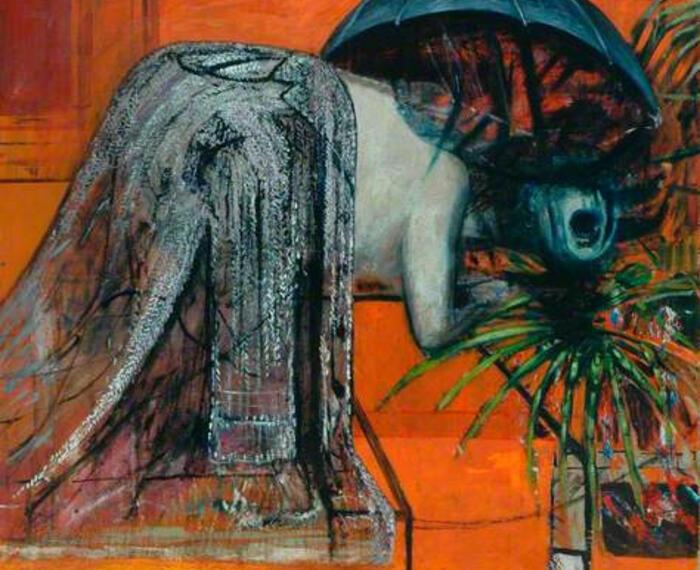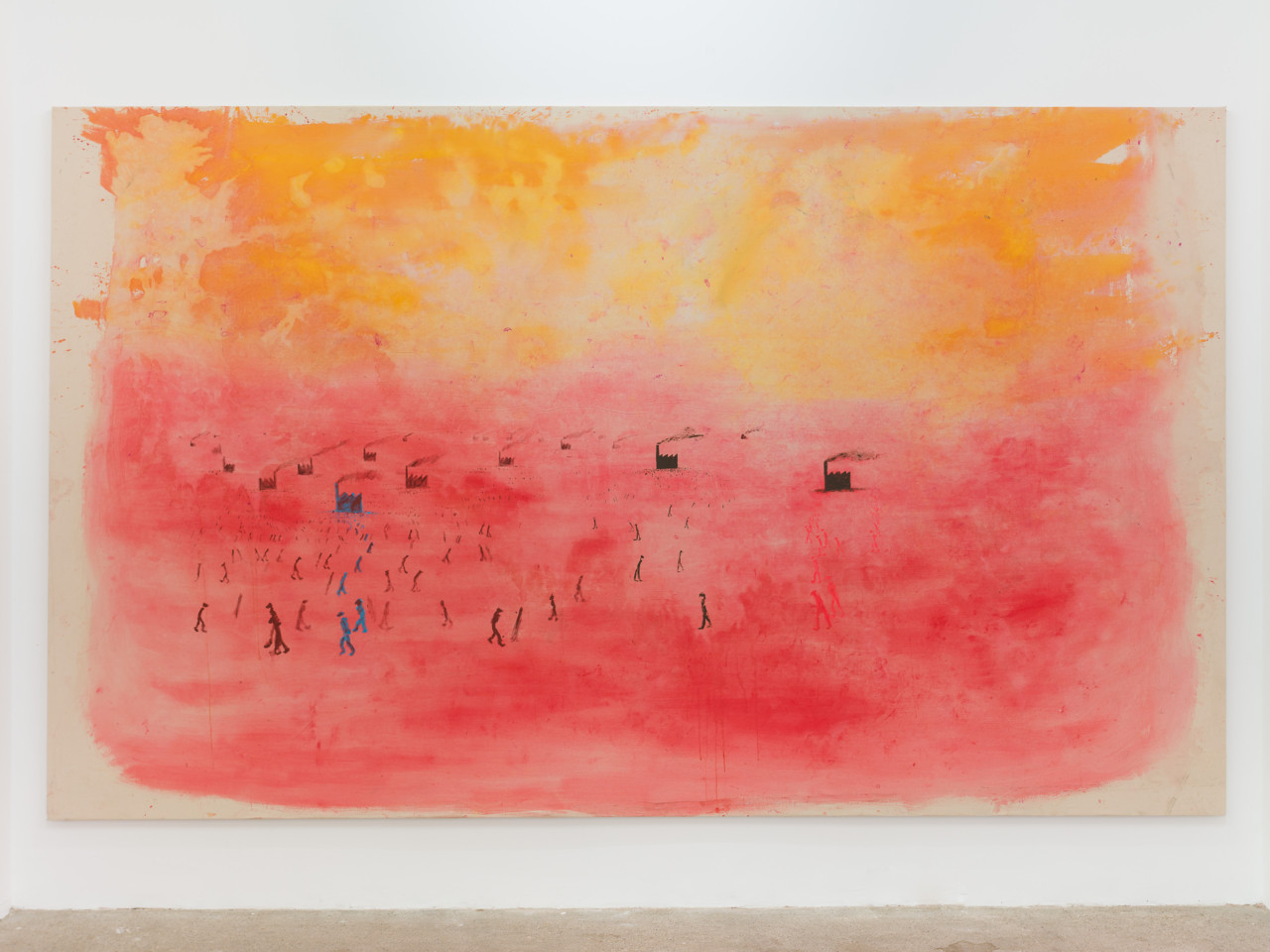


BANK, Field of Dreams 3, 1999. Courtesy the Artists and Piper Keys. Photography: Mark Blower
BANK, an art collective that was active in London in the 90s, achieved notoriety for their merciless (and at times excruciatingly funny) attacks on some of the artworld’s key players for their shallowness and megalomania. The machinations of the artworld and the incestuous relationship between art and the market were at the foreground of BANK’s critique.
Art in the 90s was marked by the rise of the YBAs and celebrity culture. BANK, who could not identify with this new reality, decided to followed their own path: they opened their own gallery in order to express themselves freely, outside the constraints of the art system. Initially named BANKSPACE, then DOG and finally Gallery Poo Poo, they exhibited their own work alongside many of their peers’.
Early shows such as Cocaine Orgasm were characterised by a trashy, post-punk, ‘anything goes’ aesthetic, but there were quiet moments too. As a result, no one could pin them down to a singular aesthetic or an endorsement of a specific position; the zines and posters they published cemented their reputation as a dissonant voice in the self-aggrandising art world of the time.
The collective ceased its activities at the turn of the millennium. As they themselves claim in the catalogue “over nine years we systematically ripped through every option to make something happen; and when we saw options running out, we changed course… or stopped.”
This new exhibition is organised in collaboration with three of the core members of the collective and is currently on view at Piper Keys, an artist-run non-profit space. It is no retrospective; rather, it is a re-staging and re-visiting of a group of paintings titled Field of Dreams, which were originally exhibited at East International in Norwich in 1999.
Fields of colour in hues of yellow, orange and red are interrupted by matchstick figures, giving way to all sorts of binaries: abstract vs figurative, sophisticated vs naïve, avant-garde vs populist, truthful vs calculated. Yet, with a desire to bridge the iconography of Mark Rothko with that of LS Lowry, these paintings go beyond stylistic or painterly concerns, into a political discussion about art in this country. BANK posters accompany the paintings and are hung in the first space upon entering the gallery, providing the context for viewing the paintings in the main space.
In some of the posters on display (Fact: Craft is Not Art, 1999, Galleries ‘All Owned by Rich People’ Shock, 1997/2019) BANK come across as mouthy and smug, while in others (Chisenhale Why?, 1996/2019) they sound more poignant, perhaps even dolorous. The poster that grabbed my attention and which I found more complicated and indicative of their state of mind is Hose, 1999/2019, where on the one hand they appear dismissive of the stereotypical media representation of the successful artist lifestyle, while they too seem to subscribe to it. It is unclear what their position is here, but this is not necessarily a bad thing. Its awkwardness and lack of moral superiority makes the work resonate well in today’s confusing and turbulent world.
Pleasing and facile as they may seem, the paintings in the main gallery comment on the divide between London and the rest of the country, especially the North of England. They also raise questions about decentralising art away from London, as well as on the problematics and possibilities of provincialism in a globalised culture.
Many of the issues that BANK raised in the 90s have exacerbated in the 20 years since they ceased, and it is the task of the art historian of the future to assess their contribution and legacy. For the moment, Summa is a wonderful opportunity to (re)discover their work in a context that amplifies their values and their sense of community.
Vassilios Doupas
Curator of Programmes
Piper Keys, 58a Artillery Lane, London, E1 7LS. Open Friday -Sunday 12.00-18.00. Exhibition continues until 7 July 2019. www.piperkeys.com